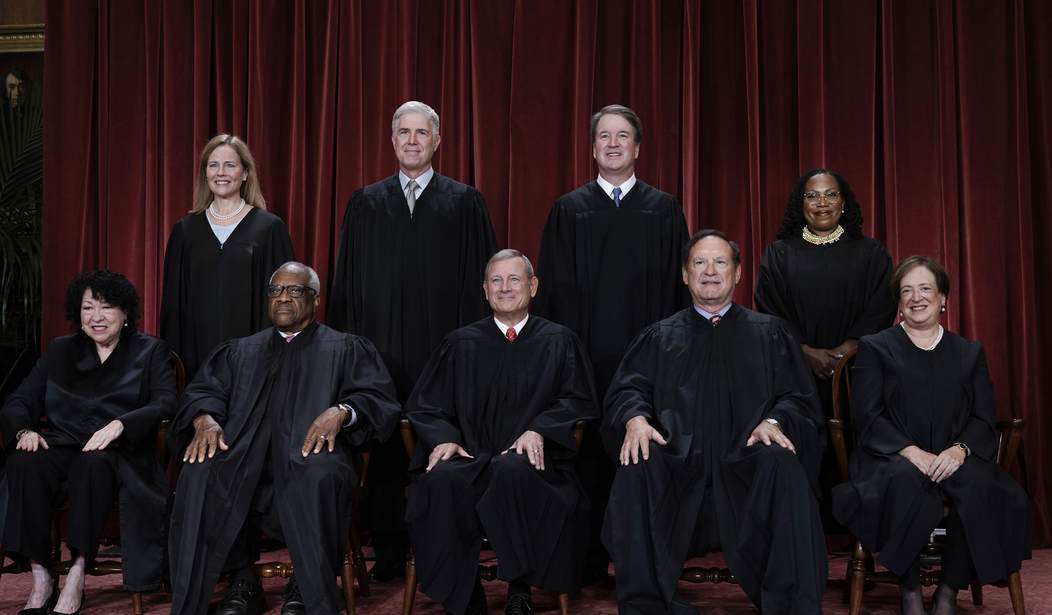The Supreme Court is hearing arguments in U.S. v. Skrmetti, an extremely important case over state restrictions on medically unnecessary interventions, such as puberty blockers and hormone treatments, for minors experiencing gender confusion.
At issue is the constitutionality of a Tennessee law that prohibits these procedures for gender-confused kids, though the outcome of this case will have implications for 24 other states enacting similar measures, as it could pave the way for more states to outlaw these practices on kids and potentially adults as well.
“The dispute is the first in which the justices will consider the constitutionality of state efforts to regulate medical interventions for transgender youth, but it comes as Republican-led states have enacted a slew of restrictions targeting transgender individuals, including policies on sports teams and restroom access,” reports CBS News. “President-elect Donald Trump has vowed to restrict medical treatments for transgender minors and bar transgender athletes from participating in women's sports. And while the Biden administration will argue Wednesday that the Supreme Court should invalidate Tennessee's law, the incoming Trump administration could reverse the government's position once it is in power early next year.”
Oral arguments are ongoing, and we’ve already got a cringeworthy claim from Justice Ketanji Brown Jackson, who was nominated to the court by Joe Biden.
For our VIPs: Will Trans Issues Be the Downfall of the Democratic Party?
She attempted to draw a parallel between banning transgender procedures for minors and banning interracial marriage during the oral arguments. Her premise was nothing short of baffling. She started by saying, “Being drawn by the statute that was sort of like the starting point, the question was whether it was discriminatory because it applied to both races and it wasn’t necessarily invidious or whatever,” before trailing off in a haze of confusion.
Her argument only got more tangled as she continued, “But you know, as I read … the case here, the court starts off by saying that Virginia is now one of 16 states which prohibit and punish marriages on the basis of racial classifications.” She clearly wanted to invoke the history of racial discrimination, but the connection to the current case was tenuous, to say the least.
Then, the real leap in logic came: “And when you look at the structure of that law, it looks in terms of you can’t do something that is inconsistent with your own characteristics. It’s sort of the same thing.” The idea that prohibiting minors from receiving irreversible barbaric gender surgeries and hormones could be compared to a law prohibiting interracial marriage is, quite frankly, laughable. Jackson’s comparison seemed to rest on an assertion that both laws were somehow grounded in “inconsistency” with one’s “characteristics.”
Of course, this is the same person who infamously declared during her confirmation hearings that she couldn’t define what a woman is because “I'm not a biologist.”
Then, without missing a beat, she tried to pivot: “So it’s interesting to me that we now have this different argument, and I wonder whether Virginia could have gotten away with what they did here by just making a classification argument the way that Tennessee is in this case.” At this point, even she seemed to realize how far-fetched the analogy was.
Solicitor General Elizabeth Prelogar, who is at the Supreme Court arguing on behalf of the Biden administration, responded, “Yes, I think that’s exactly right that there is absolutely a parallel between any law that says you can’t act inconsistent with a protected characteristic and in all other context.”
JUST IN: Justice Kentaji Jackson says laws banning s*x changes for young children are "sort of the same thing" as banning interracial marriage.
— Eric Daugherty (@EricLDaugh) December 4, 2024
"You can't do something that is 'inconsistent with your own characteristics?' It's sort of the same thing."
h/t @greg_price11 pic.twitter.com/L1JF6qmJvv
Did you need another reason to explain why Trump won the election?
Banning sex changes for minors and banning interracial marriage are fundamentally different and cannot be compared. Interracial marriage bans were rooted in overt racial discrimination. In contrast, bans on gender procedures for minors aim to protect children from irreversible medical interventions when they lack the maturity to make such life-altering decisions.
Interracial marriage laws targeted consenting adults, while these bans focus on protecting vulnerable youth. Comparing the two minimizes the harm of racial segregation and misrepresents the ethical concerns surrounding experimental medical treatments for children. It’s a false equivalence that undermines both history and reason.










Join the conversation as a VIP Member